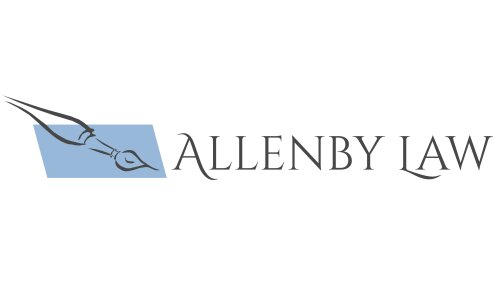Best Tax Lawyers in Fort McMurray
Share your needs with us, get contacted by law firms.
Free. Takes 2 min.
List of the best lawyers in Fort McMurray, Canada
About Tax Law in Fort McMurray, Canada
Fort McMurray, located in Alberta, Canada, is subject to both federal and provincial taxation systems. As part of Canada, residents and businesses in Fort McMurray must adhere to federal tax laws governed by the Canada Revenue Agency (CRA). Additionally, Alberta has its own specific tax regulations, which can affect income tax, corporate tax, and property tax. Fort McMurray's economy has historically been linked to the oil sands industry, which can also have unique tax considerations for individuals and businesses involved in this sector.
Why You May Need a Lawyer
There are several situations where individuals and businesses in Fort McMurray might require legal assistance concerning taxes. Some common scenarios include:
- Filing complex tax returns that require professional insight.
- Handling disputes with the Canada Revenue Agency (CRA).
- Understanding and complying with new tax laws or changes in tax regulations.
- Pursuing tax exemptions or credits specific to industries such as the oil sands.
- Assistance with estate planning and ensuring tax-efficient strategies for asset transfer.
- Addressing payroll tax issues for businesses.
- Avoiding or rectifying possible tax fraud or evasion allegations.
Local Laws Overview
In Fort McMurray, tax regulations are influenced by both federal guidelines and provincial statutes. Key aspects include:
- Personal Income Tax: Alberta has a flat income tax rate, which distinguishes it from other Canadian provinces that use a progressive tax rate.
- Corporate Tax: Competitive rates are applied to encourage business development, with specific incentives for industries involved in energy production.
- Property Tax: Local municipalities administer property taxes, which are influenced by property value assessments conducted periodically.
- Sales Tax: Alberta does not impose a provincial sales tax, but the federal Goods and Services Tax (GST) of 5% applies.
- Oil and Gas Industry: There are special tax considerations and incentives available to support the oil sands industry, a significant economic driver in the region.
Frequently Asked Questions
What are the federal and provincial tax rates applicable in Fort McMurray?
Fort McMurray, as part of Alberta, follows the federal tax rates set by CRA, and Alberta applies a flat provincial income tax rate of 10% on personal income.
Is there a provincial sales tax in Fort McMurray?
No, Alberta does not levy a provincial sales tax. Only the federal GST of 5% is applicable.
How does the taxation of the oil sands industry work?
The oil sands industry benefits from specific federal and provincial tax credits and incentives aimed at encouraging energy production and environmental responsibility.
Can I claim tax credits for renewable energy investments?
Yes, both federal and provincial programs offer tax credits and incentives for investments in renewable energy solutions.
How are property taxes assessed in Fort McMurray?
Property taxes are based on periodic assessments of property value conducted by the local municipality, a standard practice across Alberta.
What is the deadline for filing personal income tax returns?
In Canada, the deadline for filing personal income tax returns is April 30. For self-employed individuals, the deadline is June 15, but any taxes owed must still be paid by April 30.
What should I do if I receive a notice of assessment from the CRA?
Review the notice carefully, and if you believe there is an error or if you don't understand it, consult with a tax professional or lawyer for guidance.
Can I deduct expenses related to working from home?
Yes, due to COVID-19, simplified deductions are available for home office expenses if eligible criteria are met.
What resources are available for tax help in Fort McMurray?
Several community organizations and professional tax advisors based in Fort McMurray can assist with tax-related inquiries and services.
How can a lawyer assist with CRA disputes?
A lawyer can provide legal representation, help negotiate settlements, and ensure your rights are protected throughout the dispute process with the CRA.
Additional Resources
The following resources can provide valuable assistance for those seeking tax-related help in Fort McMurray:
- Canada Revenue Agency (CRA): For federal tax information and inquiries.
- Alberta Treasury Board and Finance: For provincial tax regulations and resources.
- Wood Buffalo Municipality: Local government office for property assessment and tax-related issues.
- Fort McMurray Chamber of Commerce: Offers networking and advisory services for businesses.
- Local Tax Professionals: Certified accountants and tax lawyers specializing in Alberta's tax landscape.
Next Steps
If you require legal assistance regarding tax matters in Fort McMurray, consider the following steps:
- Identify the specific tax issue or question you are facing.
- Gather all relevant documents and information related to the issue.
- Contact a certified tax professional, accountant, or tax lawyer familiar with Alberta's tax laws.
- Schedule an initial consultation to discuss your concerns and potential strategies.
- Follow your advisor's guidance and ensure you are compliant with any local, provincial, or federal tax obligations.
Lawzana helps you find the best lawyers and law firms in Fort McMurray through a curated and pre-screened list of qualified legal professionals. Our platform offers rankings and detailed profiles of attorneys and law firms, allowing you to compare based on practice areas, including Tax, experience, and client feedback.
Each profile includes a description of the firm's areas of practice, client reviews, team members and partners, year of establishment, spoken languages, office locations, contact information, social media presence, and any published articles or resources. Most firms on our platform speak English and are experienced in both local and international legal matters.
Get a quote from top-rated law firms in Fort McMurray, Canada — quickly, securely, and without unnecessary hassle.
Disclaimer:
The information provided on this page is for general informational purposes only and does not constitute legal advice. While we strive to ensure the accuracy and relevance of the content, legal information may change over time, and interpretations of the law can vary. You should always consult with a qualified legal professional for advice specific to your situation.
We disclaim all liability for actions taken or not taken based on the content of this page. If you believe any information is incorrect or outdated, please contact us, and we will review and update it where appropriate.









